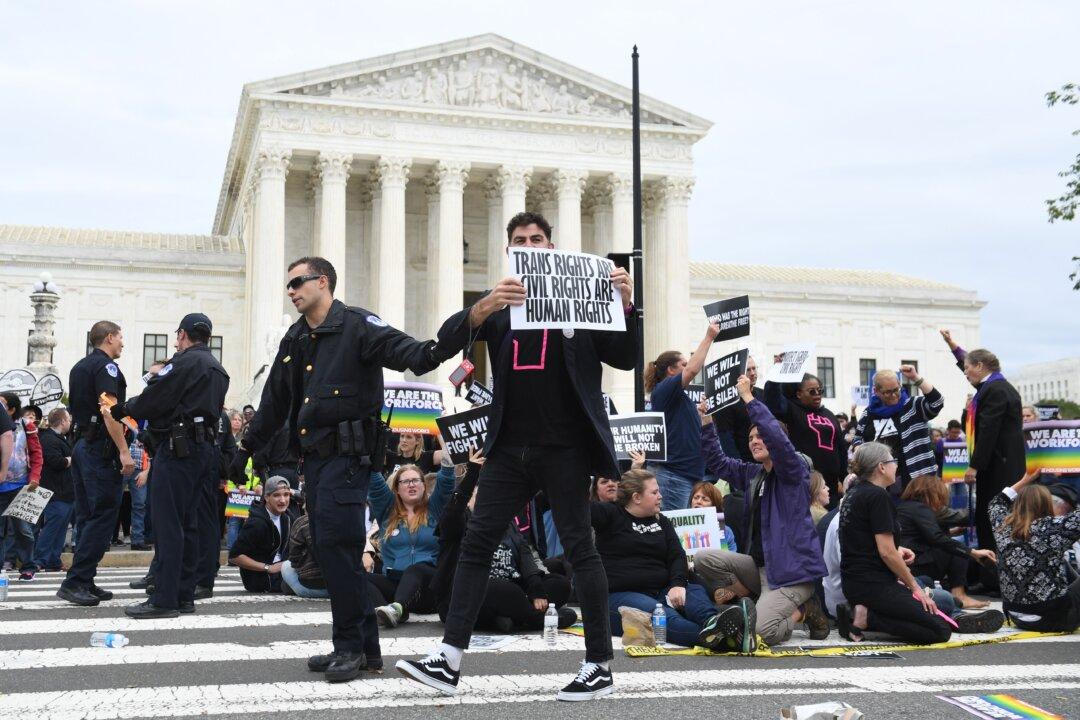WASHINGTON—The courts should punish employers for refusing to use a transgender employee’s preferred personal pronouns that conflict with biological reality, a lawyer for a man who was fired by his employer after he began presenting as a woman told a divided Supreme Court Oct. 8.
Attorney David D. Cole represents transgender person and former funeral home employee Aimee Stephens, who was born male and was formerly known as William Anthony Beasley Stephens, in the case cited as R.G. and G.R. Harris Funeral Homes v. Equal Employment Opportunity Commission (EEOC). The EEOC sued on Stephens’s behalf and later prevailed in the 6th Circuit Court of Appeals.





